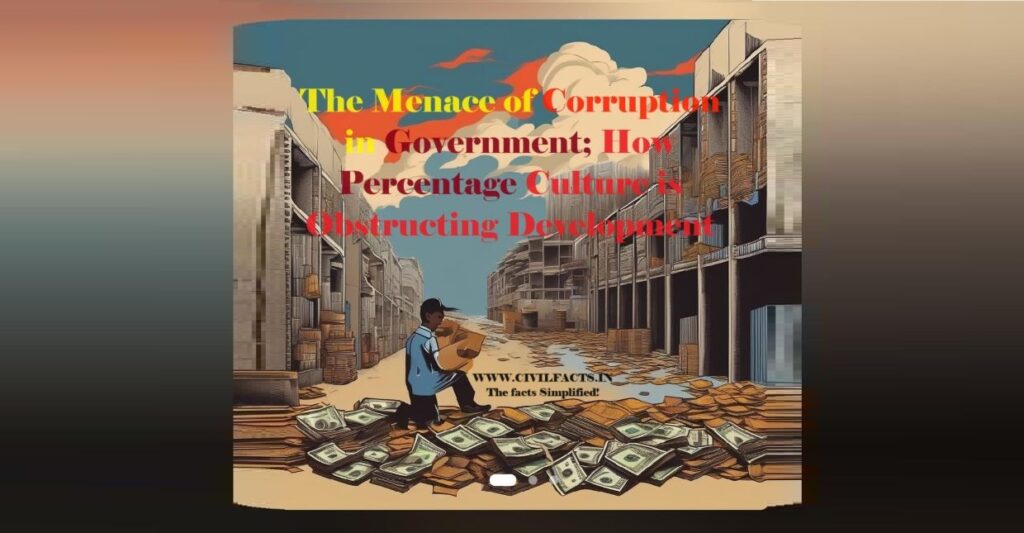Corruption in government is a pervasive problem that has long plagued societies around the world. One of the ways it manifests itself is through the culture of asking for a percentage in exchange for work done. This culture is particularly disturbing when it involves government engineers, administrative officers, and clerks, who play crucial roles in the development of infrastructure and public services.
The practice of asking for a percentage in exchange for work done is a form of bribery, and it is illegal. Unfortunately, it is also widely prevalent in many government offices, particularly in developing countries. The consequences of this culture of corruption are serious and far-reaching. It promotes poor quality work, obstructs development, and causes losses for contractors, vendors, and the public.
One of the most significant consequences of the percentage culture is the promotion of poor-quality work. When government officials demand a percentage of the cost of a project, contractors and vendors are forced to cut corners to recoup their losses. This often results in substandard work, which can have serious implications for public safety and the long-term viability of infrastructure projects.
In addition to promoting poor quality work, the percentage culture also obstructs development. When officials demand a percentage of a project’s cost, it adds an unnecessary additional burden to the already limited resources available for development. This can lead to delays in the completion of projects or even the abandonment of projects altogether.
The percentage culture also causes losses for contractors, vendors, and the public. When officials demand a percentage of a project’s cost, it raises the overall cost of the project. This, in turn, reduces the profit margins for contractors and vendors and can even make some projects unprofitable. Moreover, the added costs are ultimately borne by the public, who are left to foot the bill for these corrupt practices.
Despite the serious consequences of the percentage culture, the government has been slow to take action to stop it. This is particularly troubling given the impact it has on the development of infrastructure and public services. The government needs to take a more proactive approach to combating corruption in its ranks.
One possible solution is to implement stricter penalties for officials caught engaging in corrupt practices. The fear of severe punishment can act as a deterrent and dissuade officials from engaging in corrupt practices. Additionally, the government could establish independent oversight bodies to investigate and prosecute cases of corruption, further deterring officials from engaging in corrupt practices.
Another potential solution is to increase transparency in government procurement processes. By increasing transparency, the government can reduce the opportunities for officials to engage in corrupt practices. This can involve publishing information on procurement processes and contracts, as well as establishing mechanisms for public oversight and scrutiny.
In conclusion, the culture of asking for a percentage
in exchange for work done by government engineers, administrative officers, and
clerks is a serious problem that obstructs development, promotes poor quality
work, and causes losses for contractors, vendors, and the public. To combat
this issue, the government needs to take a more proactive approach to combating
corruption in its ranks. By implementing stricter penalties, increasing
transparency, and establishing independent oversight bodies, the government can
work to eliminate the percentage culture and promote a more transparent and
accountable government.

